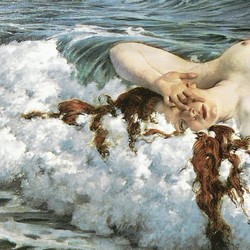- Details

I've been looking back over my notes about the Italienisches Liederbuch by Hugo Wolf these last few days because I'm preparing a talk about this work. And I realized that we had not listened to a song from this work for a long time, almost three years. I'm afraid that it's something that happens to me often, I forget the great works once introduced. It seems that 52 weeks a year are not so many... I can say in my defence that we usually listen to Wolf.
- Details

Wilhelm Killmayer was born in 1927 in Munich, and died in a nearby village, Stanberg, the day before his 90th birthday. He was born late enough to not have to fight in the war (Dietrich Fischer-Dieskau, for example, born just two years earlier, was not so lucky), but, of course, that disaster affected his life (he was the only one among his classmates who did not join any youth organization [...]
- Details

My dearest, once more, a momento musical. As you might be aware, last weekend we celebrated the Schubertíada Cantabria, and I deliberately use this verb because it was a true musical celebration. One of the images I keep for memory is that of the smiles of the public.
- Details

A few days ago, when I was finishing last week's article on Red Roses and Red Noses, I read a detail about the song that I had missed until then. On the booklet of "My Garden" (the CD from which I extracted the interpretation I shared), Richard Stokes said that Lord Berners' song was clearly a parody of Thomas Moore's song The Last Rose of Summer. I thought first I'd make [...]
- Details

[...] Nancy Mitford knew the world she wrote about well. She was the daughter of Baron Redesdale, and in her novel Pursuit of Love there is no shortage of autobiographical traits or characters inspired by real people. For instance, Lord Merlin closely resembles a good friend of the writer, Gerald Hugh Tyrwhitt-Wilson (1883–1950), better known as Lord Berners after he [...]













